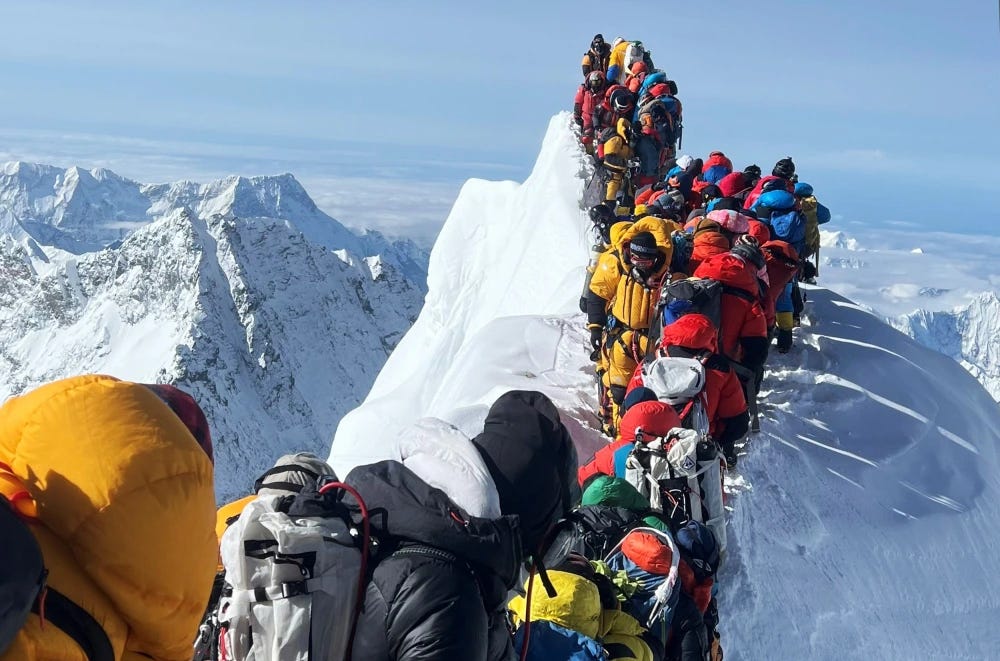Nepal Raises Everest Climbing Permit Fees by 36%
New costs take effect in September, marking the first price hike in nearly a decade.
KATHMANDU, Nepal — Mountaineers hoping to scale Mount Everest will soon face higher costs, as Nepal announced a significant increase in permit fees for the world’s tallest peak. Starting in September, the permit fee will rise from $11,000 to $15,000—a 36% hike—the first such increase in nearly a decade, officials said Wednesday.
Climbing permit fees are a vital source of revenue for Nepal, which is home to eight of the world’s 14 highest mountains. The country’s mountaineering industry attracts thousands of climbers annually, generating income and employment in the region.
“The royalty fees had not been updated for a long time. We have now revised them,” said Narayan Prasad Regmi, director general of Nepal’s Department of Tourism.
The new rates will apply to Everest’s primary South Col route, first conquered by Sir Edmund Hillary and Tenzing Norgay in 1953. Fees for other climbing seasons will also increase: permits for the autumn season (September-November) will cost $7,500, while those for winter (December-February) will be $3,750.
Despite the cost increase, expedition organizers say it is unlikely to deter climbers. “We expected this hike,” said Lukas Furtenbach of Austria-based Furtenbach Adventures. “It’s an understandable step from the Nepalese government. I hope the additional funds will be used for environmental protection and safety improvements on Everest.”
Regmi did not specify how the additional revenue would be allocated, but Nepal has faced criticism for overcrowding on Everest and insufficient efforts to manage waste and ensure climber safety. The government has periodically organized cleaning campaigns to remove garbage from the mountain, and rope-fixing operations are conducted to improve climbing safety.
Climbers returning from Everest in recent years have noted environmental changes, including less snow and drier, rockier conditions—factors that experts attribute to global warming.
Each year, Nepal issues around 300 permits for Everest expeditions, with hundreds of climbers attempting to reach the summit. The new fee structure aims to regulate the industry while increasing revenue for the country’s tourism sector.


